
Bora Lancee
Researcher, Utrecht University
Bora Lancee obtained her doctorate from the Utrecht School of Economics at the beginning of 2023. She specialized in experimental and behavioral economics, with a particular focus on the role of attention in decision-making. She is currently a researcher for the Dutch Inspection of Education and is affiliated as a researcher with Utrecht University.
Less ![]()

Boris Hansel
Médecin, Professeur des universités- Praticien hospitalier, Inserm U1148, Faculté de Santé, Université Paris Cité
Le Pr Boris Hansel est Professeur des universités en nutrition à l'Université de Paris (UFR de médecine Paris Nord), et endocrinologue. Il exerce à l’Assistance Publique des Hôpitaux de Paris (AP-HP), au sein du service de diabétologie, endocrinologie et nutrition de l’hôpital Bichat - Claude Bernard. Il codirige avec le Pr Patrick Nataf le Centre de responsabilité Santé Connectée (CRSC) de l'hôpital Bichat (AP-HP, Paris) et le Diplôme Universitaire de santé connectée de l'université Paris-Diderot (http://www.medecine-connectee.fr).
Boris Hansel anime également la chaîne PuMS, l’émission santé universitaire grand public à retrouver à cette adresse : www.pums.fr et sur Youtube (https://www.youtube.com/pumsuniv/).
Less ![]()
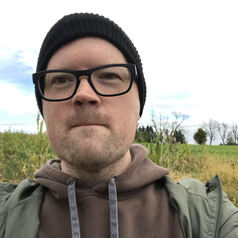
Boris Heersink
Associate Professor of Political Science, Fordham University
I am an Associate Professor in the Department of Political Science at Fordham University. My research focuses on American political parties and election campaigns. I am the author of National Party Organizations and Party Brands in American Politics: The Democratic and Republican National Committees, 1912-2016 (Oxford University Press, 2023) and the co-author of Republican Party Politics and the American South, 1865-1968 (Cambridge University Press, 2020). My articles have been published in journals such as The Journal of Politics, Political Analysis, Perspectives on Politics, Studies in American Political Development, and Political Behavior. I teach courses on American Political Parties, Campaigns and Elections, The US Congress, and American Political Institutions.
Less ![]()
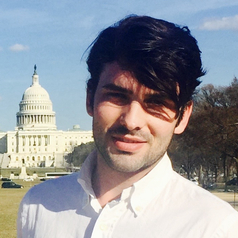
Boris Vazquez-Calvo
Profesor Ayudante Doctor en didáctica de la lengua extranjera (inglés), Universidad de Málaga
Soy profesor de didáctica de la lengua extranjera - inglés en la Universidad de Málaga, España, e investigo sobre aprendizaje de lenguas, cultura digital y prácticas lingüísticas que realizan los fans o aficionados a productos de la cultura popular contemporánea, como series de televisión, libros de literatura juvenil o videojuegos. En concreto, estudio cómo los adolescentes y los jóvenes (y no tan jóvenes) como los fans usan y aprenden lenguas y construyen identidades de múltiples maneras. Me suelo centrar en estudiar estas prácticas de los fans en contextos de interacción social en línea, mediante tecnologías digitales. También me interesan los videojuegos y su aplicación al aula de lenguas, el uso de tecnologías digitales en general para aprender lenguas y las nuevas maneras de comunicar que proliferan en internet.
Less ![]()
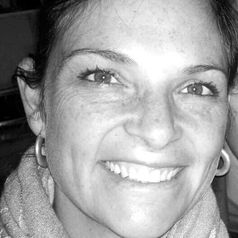
Boudina McConnachie
Ethnomusicology and African Musical Arts lecturer, Rhodes University
Dr. Boudina McConnachie (PhD, PGCE, RULS) is a lecturer in ethnomusicology at Rhodes University in Grahamstown. She co-ordinates various music education courses through the Rhodes University Education department and is integrally involved in the teaching and learning programme at the International Library of African Music (ILAM). Boudina completed her undergraduate music degree majoring in African music (uhadi and mbira) and was a music teacher at a government school in the Eastern Cape for over ten years. She has written two books relating to African music education for school children, Listen and Learn, Music Made Easy (2012) and My Music, My Classroom- Umculo Wam, Iklasi Yam (2016) and is involved in the development of African music curricula for various South African departmental projects.
Less ![]()

Boyd Elston
Co-Chairperson of the Indigenous Desert Alliance and a Regional Land Management Coordinator at the Central Land Council, Indigenous Knowledge
Boyd Elston is an Anmatyere man from the Central Desert. Boyd is Co-Chairperson of the Indigenous Desert Alliance and a Regional Land Management Coordinator at the Central Land Council. He has previously coordinated the Anangu Luritjiku Rangers who are based out of his home community of Papunya and look after a large area of Country where the Gibson Desert meets the Range Country of Central Australia.
Less ![]()

Boyoung Seo
Assistant Professor of Business, Indiana University
Areas of Expertise
Industrial Organization, Applied Microeconomics, Econometrics
Academic Degrees
Ph.D., Economics, University of Minnesota, 2016
M.A., Economics, University of Minnesota, 2015
M.A., Economics, Yonsei University, Seoul, Korea, 2011
B.B.A., Business Administration, Yonsei University, Seoul, Korea, 2009
B.A., Economics, Yonsei University, Seoul, Korea, 2009
Professional Experience
Indiana University, Kelley School of Business: Assistant Professor; July 2016 – present
Awards, Honors & Certificates
Doctoral Dissertation Fellowship, University of Minnesota, Minneapolis, Minnesota, 2015-2016
Second Place, Third Year Paper Competition, Department of Economics, University of Minnesota, 2014
Graduate Research Program Partnership Fellowship, University of Minnesota, Summer 2014
Bruce and Mildred Mudgett Fellowship, University of Minnesota, 2011-2012
Brain Korea 21 Fellowship, Yonsei University, 2009-2011
Altwell Mincho Scholarship, Altwell Mincho Scholarship Foundation, 2006-2009
Less ![]()

Brad Bottoms
Data Scientist at the Center for Social Solutions, University of Michigan
Brad Bottoms has worked as a geographer and data scientist in roles with the federal government, local government, private industry, and consultancies to NGOs. In Brad’s last position he served as the practice manager for software development and product manager for his company and the lead geospatial analyst supporting projects with FEMA, the World Bank, and many others. With over 10 years of experience with data and GIS, Brad has worked across six continents on projects ranging from data collection techniques and web development to flood exposure and habitat modeling.
Less ![]()

Brad Cannon
Assistant Professor of Finance, Binghamton University, State University of New York
Brad Cannon is an Assistant Professor of Finance at Binghamton University.
Prior to joining Binghamton, Brad was a Visiting Assistant Professor at Brigham Young University. Brad earned his Ph.D. in Finance at The Ohio State University. He earned his M.S. in Financial Economics and his B.S. in Finance and Economics from Utah State University. Brad's primary research interests are in behavioral finance and household finance.
Less ![]()

Brad Clark
Researcher, University of Canberra
Dr Brad Clark is the UCRISE Sport and Exercise Support Officer. Brad completed his PhD at Federation University Australia in the physiology of training and testing for competitive cyclists in 2014, before joining the AIS Department of Sport Physiology and later UCRISE. Brad maintains a strong research interest in applied sports physiology and supervises a number of PhD students in this area.
Less ![]()
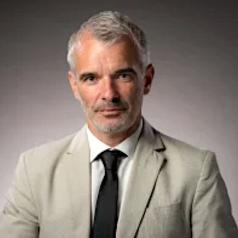
Brad Evans
Professor in Political Violence, University of Bath
Professor Brad Evans is a political philosopher, theorist, and writer, who’s work focuses on the problem of violence. He is the author of twenty books and edited volumes, along with over a hundred and fifty academic and international media articles. Brad is the founding director of the Centre for the Study of Violence, which was launched in 2023, and holds a Chair in Political Violence & Aesthetics at the University of Bath, United Kingdom. He has previously held academic positions at the University of Bristol and the University of Leeds, while also teaching at Columbia University.
Throughout 2015-17, he led a dedicated series of discussions on violence for The New York Times opinion section (The Stone). Brad later continued the conversation as lead editor in a column dealing with violence and the arts/critical theory with the Los Angeles Review of Books, which he ran from 2017-2022. He has recently been co-directing an international collaborative project titled, “State of Disappearance” (with Chantal Meza), which brings together the arts, humanities and social sciences to rethink what disappearance means in the 21st Century.
A recipient of a number of grants and scholarships, in 2018, Brad's Portraits of Violence book won a prestigious Independent Publishers Award. His works have been translated into many languages including, Spanish, Italian, French, German, Russian, Finnish, Dutch, Chinese, Turkish and Korean.
Launched in 2011, Brad is founder of the Histories of Violence project, which has a user base spanning 148 different countries. While producing its educational content and managing its online presence, he has also directed its global research projects on dedicated themes related to the problem of violence and its implications. These have included “Disposable Life,” which interrogated the meaning of mass violence in the 21st Century, along with the “Ten Years of Terror” project, which notably received international acclaim, including the screening of its associated film at the Solomon K. Guggenheim Museum, New York, during the commemorative events that marked the 10th anniversary during September 2011. Committed to education in the public interest, Brad works in consultation with a number of global organisations in both the policy and cultural fields, most recently including Save the Children. In 2016 he co-directed a forum in collaboration with the International Committee of the Red Cross in Geneva titled “Old Pain, New Demons”, on the occasion of the International Day in Support of Victims of Torture. Brad has also worked with cultural organisations such as Opera North, UK, co-directing initiatives on the theatrical and performative nature of violence. Recently he has hosted and led a series of discussions under the rubric of a “Century of Violence” to mark the 100th anniversary of the journal The Philosopher by interrogating with leading authorities the most important books on violence during that period.
Brad has been a visiting fellow at the Committee on Global Thought at Columbia University, New York (2013-14) and distinguished society fellow at Dartmouth College, New Hampshire (2017). More recently, he has been a visiting fellowship at the Käte Hamburger Centre for Apocalyptic and Post-Apocalyptic Studies (CAPAS) at Heidelberg University in Germany (2023).
Brad regularly makes television and radio appearances discussing his research and wider political, philosophical, and cultural concerns. He continues to write for many prominent international news outlets such as the New York Times, Newsweek, the Times (U.K.), the Guardian, the Independent, The Times Higher Education, World Financial Review, Al Jazeera, TruthOut, Counterpunch and Wales Arts Review. His projects have been featured in various outlets including NME, Business Standard, The Telegraph, Metro, The Indian Times, Pakistan Today, Hamilton Spectator, CBS news, ABC news, El Pais, Art Review, and Art Forum to name a few.
In terms of broadcast conversation and more popular forms of entertainment, Brad was the inaugural guest on Russell Brand's podcast show Under the Skin, which debuted at No.1 on the iTunes charts in United Kingdom and Australia & No. 3 in USA and Canada. It held its No.1 download positions in both respective countries for over a week. Brad would later feature several times on the podcast covering a variety of topics from terrorism, the pandemic onto fascism. Together, they also co-hosted a 4 part series “Books with BraNd” in which they discussed timely and timeless classics. Alongside this, Brad would also appear numerous times on Brand's "True News" series The Trews and his YouTube videos, where they analysed worldly events. These podcasts and videos have been downloaded over 8 million times. Working alongside the comedian Jimmy Carr, Brad was a credited academic advisor for the Netflix show The Fix launched in December 2018.
Brad's published books include Ecce Humanitas: Beholding the Pain of Humanity (Columbia University Press, 2021); When the Towers Fell: Commemorating the 20th Anniversary of 9/11 (The Los Angeles Review of Books Press, 2021) Conversations on Violence: An Anthology (Pluto Press, 2021); The Quarantine Files: Thinkers in Self-Isolation (The Los Angeles Review of Books Press, 2020); The Atrocity Exhibition: Life in the Age of Total Violence (The Los Angeles Review of Books Press, 2019); Violence: Humans in Dark Times (with Natasha Lennard, Citylights, 2018); Histories of Violence: Post-War Critical Thought (with Terrell Carver, Zed Books, 2017); Portraits of Violence: An Illustrated History of Radical Thinking (with Sean Michael Wilson, New Internationalist, 2016); Disposable Futures: The Seduction of Violence in the Age of the Spectacle (with Henry Giroux, Citylights: 2015), Resilient Life: The Art of Living Dangerously (with Julian Reid, Polity Press, 2014), Liberal Terror (Polity Press, 2013), and Deleuze & Fascism: Security - War - Aesthetics (with Julian Reid, Routledge, 2013).
Forthcoming books include the co-curated State of Disappearance (with Chantal Meza, McGill-Queens University Press, 2023) and How Black was my Valley: Life & Fate in a Post-Industrial Heartland (Repeater/Penguin Random House, 2024).
Less ![]()

Brad Phillips
Assistant Professor of Nursing, West Virginia University
Brad Phillips, PhD, RN, CNE is an Assistant Professor of Nursing at West Virginia University. His primary area of research is focused on family-centered care, children with acute/chronic illness, and the subsequent impact on caregivers, families, and communities. He has published multiple peer-reviewed articles in research and clinical journals, and disseminated his work at state, national, and international conferences. Dr. Phillips is passionate about enhancing the allocation of support and community-based resources for caregivers of children with special healthcare needs to improve their overall health, wellbeing, and quality of life.
Less ![]()

Brad Reisfeld
Professor of Chemical and Biological Engineering, Colorado State University
I am a Professor at Colorado State University in the Department of Chemical and Biological Engineering, School of Biomedical Engineering, and School of Public Health. My research focuses on quantitative systems pharmacology and toxicology. I am board certified in toxicology and am a Fellow of the Academy for Toxicological Sciences.
Less ![]()

Brad Underhill
PhD candidate and tutor, History, Deakin University
In 2017I completed a Bachelor of Arts (Hons)/Bachelor of Commerce majoring in History and Economics. I was awarded the 2016 Bowater Trust medal (Deakin Business School Graduate of the Year), and 2017 the Vice Chancellor’s prize for my Honours thesis titled ‘Co-operatives in Papua New Guinea: Economic and Political Development or Colonial Control?’. In 2018 I commenced a PhD at Deakin University on a Postgraduate Research Scholarship. My thesis is titled ‘The New Deal on the Ground in Papua New Guinea’ and is assessing how successful Australian colonial planners were in designing and implementing post-war colonial development in Papua New Guinea. The research project plans to emphasise the Papuan New Guinean perspective of the impact of post-war development on their lives.
Less ![]()
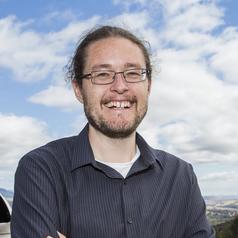
Brad E Tucker
Astrophysicist/Cosmologist, Australian National University
I am an Astrophysicist/Cosmologist, and currently a Fellow at the Research School of Astronomy and Astrophysics, Mt Stromlo Observatory and Senior Lecturer at the National Centre for the Public Awareness of Science at the Australian National University.
I have my hand in a variety of things, but the majority of my work involves exploding stars called supernova, and cosmology, the study of the universe. A certain type of supernova, called a type Ia, can be used as a standard candle that can trace our universe's history.
For this work, I am involved with a number of supernova surveys. I have been working on the ESSENCE Project, The CfA Supernova Search, The Carnegie Supernova Project and also using Mt Stromlo's new SkyMapper telescope. I am one of the leads of the Kepler Extra-Galactic Survey, KEGS, a Kepler Space Telescope Key Program, to understand why and how stars blow. I am leading a project to build a network of ultraviolet telescopes in the upper atmosphere which are being built at Mt Stromlo.
In addition to research, I frequently give talks to school groups and the general public about astronomy and have regular segments on various radio stations talking about astronomy news and events.
Among other things, I have developed a series of astronomy coins in conjunction with the Royal Australian Mint, consulted on science fiction movies, advised on astronomy-themed art projects, and have been featured in specials on the National Geographic Channel.
I am currently in the process of writing my first popular book and producing a Massive Open Online Course.
Less ![]()

Bradley Duncan
Professor of Electrical and Computer Engineering, University of Dayton
Dr. Duncan's research interests include LADAR system analysis and design, RF digital and free space optical communications, fiber optic sensing/communications, optical waveguide transmission applications and non-destructive evaluation and holography.
Less ![]()

Bradley Wade Bishop
Professor of Information Sciences, University of Tennessee
Bradley Wade Bishop's research focus is on Research Data Management, Data Discovery, Geographic Information Science, as well as the study of data occupations, education, and training. He serves as Associate Editor for Telematics and Informatics and on several other editorial boards.
Less ![]()
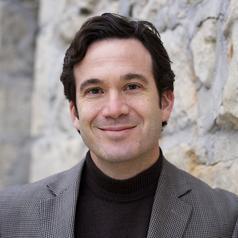
Brady Deaton, Jr.
Professor of Food, Agricultural and Resource Economics, University of Guelph
Professor Deaton is Professor and McCain Family Chair in Food Security in the Department of Food, Agricultural and Resource Economics at the University of Guelph. His research focuses on the allocation of resources, within society, and the subsequent consequences for food security, economic development and environmental quality. Property rights and ownership of natural resources figure prominently in his research and teaching efforts.
He has examined these issues in a number of different settings including: Canada, First Nations, the United States, Bangladesh, Sri Lanka, and Haiti. In 2017 he gave testimony before sub-committees of both the Canadian Senate and the House of Commons on issues related to farmland and farmland ownership.
In 2010, he founded a podcast series called FARE Talk. The podcasts address important contemporary issues in food, agricultural, and resource economics. It is available here: . He has served as an editor of the Canadian Journal of Agricultural Economics and is currently the acting past-president of the Canadian Agricultural Economics Society.
Less ![]()
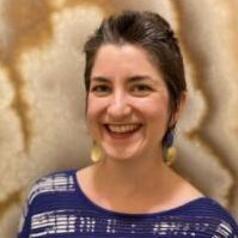
Brady G'Sell
Assistant Professor of Gender, Women's, and Sexuality Studies and Anthropology, University of Iowa
My research examines the intersection of citizenship, kinship, and economy in the everyday lives of South African families. As the availability of wage labor declines globally, I research how women rework the obligations entailed by kinship and citizenship in order to combat their social and economic insecurity. Drawing on approaches from feminist anthropology, women’s history, and gendered theories of capital, my work considers how intimate relationships—such as those between couples or kin—reproduce or transform both economic inequalities and political belonging. I address these questions in South Africa, where gender, race, and work mark the shifting boundaries of political inclusion.
I am in the process of writing up a book on my research on poor women’s efforts to garner resources for themselves and their children between 1960 and 2014. During this period, the availability of both marriage and waged work declined dramatically, rendering social reproduction and political recognition quite tenuous. Using archival and ethnographic research on family life and welfare provision, I tracked the livelihood strategies of poor mothers living in a multiracial inner-city neighborhood in the apartheid and democratic eras. My work reveals that women responded to men’s declining ability to earn a family wage and to formalize marriage relationships by cultivating new relations of obligation and dependency. I show how women built resource networks across families, friends, and communities that outlined alternative conditions of debt and duty not grounded in either a marital contract or relations of affinity. In the process, I argue, women not only responded to, but actively constructed the gendered and racial economy of the country and forged new relations between men and women, persons and communities, citizens and the state.
Less ![]()

Brady Podloski
Instructor, Disaster and Emergency Management, Northern Alberta Institute of Technology
Brady Podloski is a Instructor at the Northern Alberta Institute of Technology in Canada, teaching Disaster and Emergency Management. His research interests look to explore disaster risk reduction, recovery, and vulnerability reducing actions and analyzing how each can contribute to creating more sustainable development processes. In addition to analyzing mitigations effectiveness and how it influences on societies.
Brady has a background in disaster recovery, and is a ICS practitioner, working as the Planning Section Chief and Situation Unit Leader during the 2023 Alberta Spring Wildfires.
Less ![]()
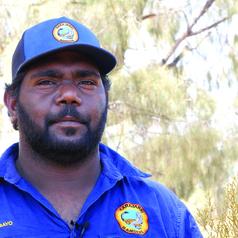
Braedan Taylor
Traditional Owner; Karajarri Lands Trust Association/UWA, Indigenous Knowledge
Braedan is a Karajarri Traditional Owner, with many years of experience as head ranger, looking after desert and sea country. He currently studies marine science at UWA
Less ![]()
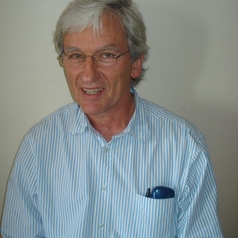
Brahm Norwich
Professor of Educational Psychology and Special Educational Needs, University of Exeter
Brahm Norwich is Professor of Educational Psychology and Special Educational Needs at the Graduate School of Education, University of Exeter.
He was previously Professor of Special Needs Education, Institute of Education, London University. He has worked as a school teacher, professional educational psychologist and university teacher and researcher.
His broad area of interest is special needs and inclusive education: for example, policy and practice issues, concepts and values, emotional and behaviour difficulties, moderate learning difficulties, pedagogic issues and professional learning. His research interests include applying psychology to education, including psychology applied to special needs and inclusive education.
Less ![]()
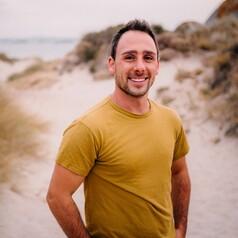
Brais Suárez Eiroa
Investigador postdoctoral en economía política ecológica, Universidade de Vigo
Brais Suárez Eiroa es investigador postdoctoral en la Universidade de Vigo. Su investigación se centra principalmente en el ámbito de la economía ecológica desde una perspectiva postcrecimiento, analizando diferentes cuestiones en la intersección entre la economía, la sociedad, la política y el medio ambiente. En la actualidad, acumula experiencia internacional en la Universidad de Sheffield, la Universidad de Barcelona, el Centro de Investigación del Territorio, Transporte y Ambiente de las Universidades de Oporto y Coímbra, y también con su participación en múltiples proyectos nacionales e internacionales. Además de sus actividades de investigación, Brais participa energéticamente en actividades de divulgación, transferencia y public engagement, como evidencia su coordinación de los proyectos Postgrowth S.A.: Pontevedra y Postgrowth S.A.: Vigo. El contrato de Brais Suárez Eiroa está financiado, actualmente, por las Ayudas Postdoctorales Xunta de Galicia (ED481B-2023-011).
Less ![]()

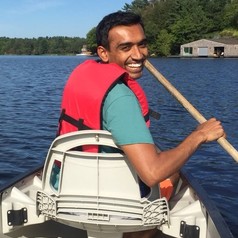
Branaavan Sivarajah
Postdoctoral Fellow, Department of Geography and Environmental Studies, Carleton University
Freshwaters around the world are impacted by multiple co-occurring stressors and my research provides long-term perspectives about how aquatic ecosystems have changed over the last two centuries. My graduate research at Queen's University (Kingston, Ontario, Canada) examined the cumulative effects of climatic changes, resource extraction operations, and land-use activities on temperate and Arctic freshwater ecosystems in Canada. As an NSERC Postdoctoral Fellow at Carleton University (Ottawa, Ontario) and Mount Allison University (Sackville, New Brunswick), I am assessing microplastic pollution at the intersection of aquatic and terrestrial ecosystems; and I am also examining ecological recovery in Maritime lakes that were impacted by historical gold mining activities.
Less ![]()

Brandi Estey-Burtt
Fellow with the Centre for Interdisciplinary Research on Narrative; part-time lecturer in English Literature, St. Thomas University (Canada)
I have published on religion, postcolonialism, and literature in key academic journals such as Literature & Theology and ARIEL: A Review of International English Literature. I have also co-participated in SSHRC-funded research projects on new religions and alternative spiritualities and now research gender, deviance, and neurodivergence in children's literature.
Less ![]()

Brandi Estey-Burtt
Fellow with the Centre for Interdisciplinary Research on Narrative; part-time lecturer in English Literature, St. Thomas University (Canada)
I have published on religion, postcolonialism, and literature in key academic journals such as Literature & Theology and ARIEL: A Review of International English Literature. I have also co-participated in SSHRC-funded research projects on new religions and alternative spiritualities and now research gender, deviance, and neurodivergence in children's literature.
Less ![]()

Brandi Goddard
Assistant Lecturer, History of Art, Design & Visual Culture, University of Alberta
Brandi S. Goddard is a lecturer in Art History based in Edmonton, Alberta. Her research explores traditional crafts and making, and she is currently teaching courses on the history of design, craft history & theory, and the British Arts & Crafts Movement in a global context. In addition to her continuing work on Irish crafts, she is also beginning a new project on transnational explorations of the Canadian Handicrafts Guild and the Canadian Prairies.
Less ![]()
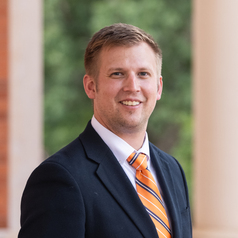
Brandon Boatwright
Assistant Professor of Communication, Clemson University
Dr. Boatwright is a two-time graduate of Clemson University, and recently completed his doctoral studies at the University of Tennessee, Knoxville in Communication and Information with an emphasis in Advertising and Public Relations. His research focus examines the intersection of sports, social media, and opinion leadership. Dr. Boatwright also serves as the Director of the Social Media Listening Center in the Department of Communication. He has published original research in Public Relations Review, The Journal of Contingencies and Crisis Management, Computers in Human Behavior, The Journal of Public Interest Communication, and the Southern Communication Journal. He is an active member of the National Communication Association and the Southern States Communication Association.
Less ![]()

Brandon Dean
Visiting Assistant Professor of Religious Studies, University of Iowa
My main area of focus is American religion, particularly its intersection with popular culture. I have taught a wide variety of classes including courses on comics and religion, death and dying, religion in America, medieval religion, modern religion, sport and religion, and the New Testament.
Less ![]()


Brandon Kostinuk
Brandon is the communications lead at Vanbex Group, a cryptocurrency and blockchain marketing and communications firm based out of Vancouver, B.C.
Brandon oversees creation and management of internal and external communications, which include press releases, articles and general inbound content.
He writes the Vanbex Report, an analytical, at times, thought-provoking, look at cryptocurrency and blockchain related news and current events published on a weekly basis.
Less ![]()

Brandon Mak
PhD student, Department of Geography, King's College London
Brandon Mak is a PhD student in the Department of Geography. He trained as an architect at the University of Edinburgh between 2012-17, where he earned a BA and Master of Architecture. Subsequently, he moved to London to complete his MSc in Sustainable Cities with distinction in 2018 at King’s College London.
There, he collaborated with the Barn Owl Trust to conduct fieldwork as part of his master's thesis, which studied the influence of buildings on the microclimates of nest boxes used for barn owl conservation.
Less ![]()

Brandon May
Lecturer in Criminology, University of Winchester
Brandon is an accomplished and experienced Educator, University Lecturer, and Higher Education Leader with extensive research expertise spanning the policing, defence, security, risk assessment, and emergency management sectors. His recent research focuses on the intricate dynamics and intricacies of human decision-making in complex, high-risk emergency response, security, and defence contexts. Additionally, he has explored the psychology of technological innovation in decision-making and human performance, aviation security and risk, and influence and strategic communications in security and defence domains. Brandon has applied his analytical, research, and subject matter expertise in the following areas:
Application and Efficacy of Technology in Emergency Response, Defence, and Security Contexts: Conducted research on the utilization and effectiveness of technology in various high-pressure environments to enhance emergency response, defence strategies, and overall security measures.
Victimology, Trauma, and Intersectionality: Investigated the intersection of victimology, trauma, and social identities, exploring the unique challenges faced by individuals who experience victimisation and the impact of intersecting identities.
Enhancing Intelligence Efficacy in Policing and Covert Contexts: Conducted research aimed at improving intelligence gathering and utilisation in the realm of policing, including covert operations, with a focus on enhancing operational effectiveness and strategic decision-making.
Development of Strategic Communication to Influence Human Behaviour in National Security and Health Contexts: Explored the development and implementation of strategic communication approaches to shape human behaviour in domains of national security and public health, considering the intricate interplay of communication strategies and desired outcomes.
Investigating and Managing Sexual Offence Behaviours: Conducted research on the etiology, assessment, and management of sexual offense behaviors, with a focus on developing effective intervention strategies and risk assessment models.
Police Investigative Interviewing and Interrogation: Explored the techniques, ethics, and effectiveness of police investigative interviewing and interrogation methods, seeking to enhance the quality and reliability of investigative processes.
Covert Intelligence Policing Practices: Conducted research into covert intelligence practices within the policing context, examining the strategies, challenges, and legal implications associated with intelligence gathering and covert operations.
Emergency Response Decision-Making: Explored the cognitive processes and decision-making strategies employed in high-stakes emergency response scenarios, aiming to optimize decision-making effectiveness and enhance operational outcomes.
Research Methodology and Social Science Analysis: Demonstrated expertise in research methodology and social science analysis, utilising a range of qualitative and quantitative research methods to investigate complex phenomena and generate insightful findings.
Less ![]()

- Market Data





















